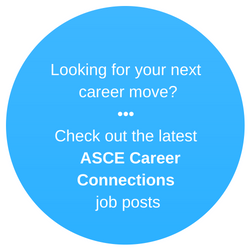Before I dive into an answer to this question, let’s take it one step at a time for those civil engineering professionals who aren’t clear on what advocacy means.
From a basic level, we find the Dictionary.com definition of advocacy being the act of pleading for, supporting, or recommending; active espousal.
Wikipedia gives a more complete definition, related to politics:
Advocacy is an activity by an individual or group which aims to influence decisions within political, economic, and social systems and institutions. Advocacy can include many activities that a person or organization undertakes including media campaigns, public speaking, commissioning and publishing research or conducting an exit poll or the filing of an amicus brief. Lobbying (often by lobby groups) is a form of advocacy where a direct approach is made to legislators on an issue which plays a significant role in modern politics. Research has started to address how advocacy groups in the United States and Canada are using social media to facilitate civic engagement and collective action.
 Often people vote for a candidate, and if that candidate wins, those same people feel that their political duty is finished. Wrong. If your candidate wins, you must then continue the conversation with that individual and their team to attempt to get your goals achieved.
Often people vote for a candidate, and if that candidate wins, those same people feel that their political duty is finished. Wrong. If your candidate wins, you must then continue the conversation with that individual and their team to attempt to get your goals achieved.
For example, maybe there is a highway in your county that is falling apart. If you and your civil engineering colleagues lobby for funding so that the highway can be repaired, rehabilitated, or rebuilt altogether, you may increase the likelihood that the funding is provided, and the project happens. Your actions however large or small can have an impact.
Elected officials need votes to keep their jobs. They get votes by keeping their constituents happy. If enough constituents ask for something, there is an increased likelihood of it happening.
To get back to the question: As civil engineers, we have a responsibility to the citizens of our communities. In fact, Canon No. 1 of ASCE’s Code of Ethics is titled Hold Safety Paramount, and reads:
Engineers shall hold paramount the safety, health and welfare of the public and shall strive to comply with the principles of sustainable development in the performance of their professional duties.
One way we can do this is lobbying our policymakers at all levels of government to ensure that our roads, bridges, and other public facilities are safe.
The worst mindset you can have is, “I am only one person, I can’t make a difference.” Some of the biggest movements in our country’s history started with one person. Why can’t the next one be you?
Here’s how you can get involved …
The easiest way to get involved with advocacy is to get involved with ASCE’s Key Contact program by emailing [email protected]. ASCE Key Contacts influence the policy process at the state and federal levels by developing relationships with elected officials. By meeting and making contacts with your elected officials in several ways, you can engender true conversations about issues important to the profession, and become a trusted advisor when bills are drafted or considered.
You can get more information about the program on ASCE’s website, here. You can also listen to an episode of The Civil Engineering Podcast entitled, “The Involvement of Civil Engineers in Legislation,” where I interview an ASCE member about the program.
Maybe the title of this post should have been: Why Wouldn’t I Get Involved with Advocacy as a Civil Engineer?
Anthony Fasano, P.E., M.ASCE, is the founder of the Engineering Management Institute (previously known as the Engineering Career Coach), which has helped thousands of engineers develop their business and leadership skills. He hosts the Civil Engineering Podcast and he is the author of a bestselling book for engineers, Engineer Your Own Success. You can download a free video series on his website that will give you the tools needed to immediately improve your networking and communication skills by clicking here.
He has also recently started the Engineering Management Accelerator to help engineers become more effective managers: www.EngineerToManager.com.



Hi Anthony! How do you decide on your topics? I have a question / idea for a discussion and would love to hear your thoughts.
Thanks,
Midori